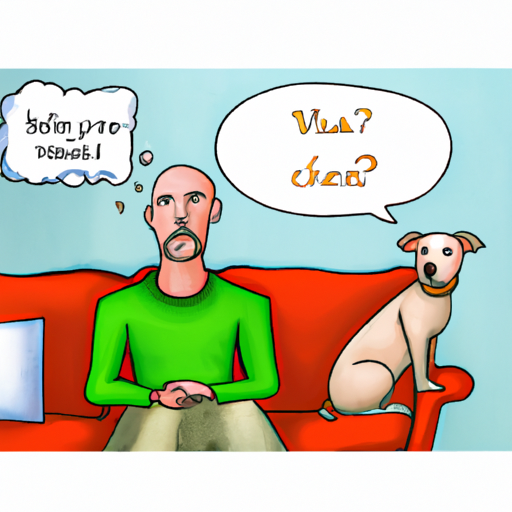If you’ve ever asked yourself, “Why does my dog bark at me?” you’re not alone. This question plagues many dog owners and can be quite perplexing. This article will delve into the possible reasons behind your dog’s barking and provide practical solutions to this behavior.
Understanding Your Dog’s Barking
One of the first steps to understanding why your dog barks at you is to realize that barking is a form of communication for dogs. They don’t have the words to express their needs, fears, or desires, so they use barks, growls, whines, and other sounds to get their point across.
Reasons Why Dogs Bark
There can be numerous reasons why your dog barks at you, including:
- Attention Seeking: They might want your attention for playtime, a walk, or just some pets and cuddles.
- Boredom: Dogs who are not mentally or physically stimulated often resort to barking.
- Fear or Anxiety: If your dog feels threatened or anxious, barking is a common response.
- Medical Issues: Sometimes, dogs in pain or discomfort can bark excessively.
Attention Seeking Barking
Dogs often bark at their owners to get their attention. They might be trying to tell you they’re hungry, want to play, or just want some cuddles. To curb this behavior:
- Ignore the Barking: Don’t reward your dog’s barking with the attention they’re seeking. Wait until they’re quiet, then give them attention.
- Use a Command: Teach your dog a quiet command. When they obey, reward them with praise or a treat.
Barking Due to Boredom
Boredom is a common reason why dogs bark. They have energy to burn, and if they’re not given appropriate outlets, they may turn to barking.
| Ways to Combat Boredom | Description |
|---|---|
| Exercise | Regular walks and playtime can help tire out your dog. |
| Mental Stimulation | Use puzzle toys or training sessions to engage your dog’s mind. |
| Social Interaction | Arrange playdates with other dogs. |
Fear or Anxiety-Induced Barking
Dogs often bark when they’re scared or anxious. This could be due to a new environment, loud noises, or unfamiliar people.
- Identify the Trigger: Once you know what’s causing your dog’s anxiety, you can work to desensitize them to it.
- Use Comforting Techniques: Create a safe space for your dog, utilize calming wraps, or consider using dog-appeasing pheromones.
Barking Due to Medical Issues
Sometimes, dogs bark because they’re in pain or discomfort. If your dog’s barking is accompanied by other symptoms such as lethargy, loss of appetite, or changes in behavior, it’s time to see a vet.
Training Your Dog to Stop Barking
Training your dog to stop barking can require patience, but it can be done. It’s important to stay consistent with your training and to reward your dog for quiet behavior.
Coping with Your Dog’s Barking
Remember, it’s natural for dogs to bark. However, if your dog’s barking is causing problems, it’s important to address the issue. This could mean seeking help from a professional dog trainer or behaviorist.
FAQs
Why does my dog bark at me and not others?
Your dog may feel more comfortable communicating with you, their primary caregiver, than with strangers or less familiar people.
Is excessive barking a sign of a bigger issue?
While occasional barking is normal, excessive barking could indicate boredom, anxiety, or even a medical issue.
How can I train my dog to bark less?
Start with identifying the cause of the barking. Then, use training techniques like ignoring the barking, using a quiet command, or providing more mental and physical stimulation.
Should I punish my dog for barking?
Negative punishment can often lead to more behavioral problems. Instead, try to understand the cause of the barking and address that.
Can a vet help with my dog’s barking?
Yes, if your dog’s barking is due to a medical issue or severe anxiety, a vet can provide treatment options.



